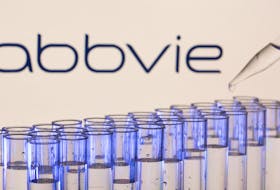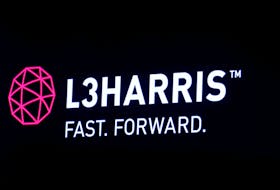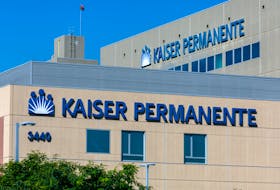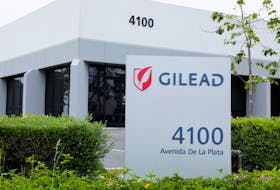
Somru BioScience Inc. is dedicated to making cutting-edge human therapeutics accessible to the general public.
Based in Charlottetown, the bioscience start-up discovered a unique niche in the global pharmaceutical industry and began generating revenue within six months of its 2012 launch.
It was aware that patents were expiring on many biologic medicines utilizing cellular and molecular biology to treat cancer, blood conditions, auto-immune disorders, and neurological disease.
Somru responded by creating testing procedures advancing the development of biosimilar drugs that are equally effective but considerably less expensive.
“Their business model is impressive,” says Rory Francis, Executive Director of the P.E.I. BioAlliance.
“Typically, a new bioscience company takes three-to-four years to raise capital and get its product to market before earning revenue. Somru is a lean operation and found its ‘unmet need’ early on. Plus, it’s a family operation, highly motivated to work together.”
Mohammed Moin, vice-president of business development, traveled to Ontario from Bangladesh to attend university but transferred to UPEI when he discovered international students were welcome in its co-operative education program.
“That was a tremendous advantage, and I valued it. When it came time to start our business, we chose P.E.I. to return the favour — and it’s a wonderful place to raise a family.”
Another major factor was what he terms the “overwhelming” support for P.E.I.’s bioscience companies.
“There’s a convergence of resources for startups here — with strong provincial and federal backing; introductions to decision makers; and access to state-of-the art equipment at the National Research Council (NRC) when we couldn’t afford our own. My brother and sister-in-law, who with my wife co-founded the company, are based in the U.S. but agreed P.E.I. was the place to be.”
The brothers vowed to succeed in drug development after their father died of esophageal cancer without access to groundbreaking medication.
“Biologics are expensive, tens of thousands of dollars, and a course of treatment could cost $200,000 per year,” says Moin.
CLICK HERE TO READ MORE ABOUT BIOLOGICS
The Somru™ antibody platform technology for research, diagnostic and therapeutic applications offers superior binding affinity and bioactivity in a variety of biological assays within a shortened period of time.
With the ability to customize antibodies and generate quality reagents, Somru helps clients accelerate biosimilar R&D.
Ready-to-use test kits monitor and predict patients’ response to drug treatment for various illnesses including Crohn’s disease and rheumatoid arthritis.
“It will provide a new tool for physicians to make better decisions more quickly,” says Moin. “With Obamacare in the U.S., there’s increased demand for getting more affordable drugs to market sooner.”
Some 60 per cent of customers are in the U.S., with others in Europe.
Somru recently moved into a new West Royalty facility and will hire an additional five employees in the coming year.
Current staff includes former Islanders recruited home and a Holland College bioscience technology graduate.
The future for the company is promising, with additional opportunities in veterinary care and functional food.
“Somru was my father’s name,” explains Moin. “It’s a motivational word for us. It reminds us to work hard every day. We’re doing this in his honour.”
Today’s biologic medicines have revolutionized treatment for patients with serious illness, including cancer, blood conditions, and auto-immune and neurological disorders such as rheumatoid arthritis and multiple sclerosis.
The mapping of the human genome — a breakthrough in biotechnology — has prompted a surge in innovative research, including experimental remedies involving stem cell and gene therapy.
Today, more than 400 biologic medicines are being studied globally.
Biologic medicines are generated in living organisms by genetically engineering DNA.
DNA is introduced into living bacteria, yeast or cultured animal cells to promote a particular protein.
That biologic is modified and specific chemicals added to maintain its function.
The most effective cell line is identified and expanded as the source for future medicine, then purified in large bioreactors using sophisticated technology.
The entire process is complex, requiring vigorous quality systems and substantial experience, expertise, and financial investment.
Unlike generic medicines with identical active ingredients, biosimilars are similar to, but not identical copies of, the original biologic.
Biosimilar medicines must be similar in terms of structural characteristics, safety, and efficacy, with differences expected as long as they are not clinically meaningful.
With increasing demand for accessible, affordable, and top-quality health care for all, the regulated introduction of biosimilars into the market is anticipated by many.
With biologic medicines worth an estimated $81 billion in annual global sales soon losing their patent protection, a new generation of complex biosimilars is on the horizon.








